What is Scalability in Cloud Computing? Types, Benefits,...
April 24, 2024
Home >> Flutter >> Swift vs Flutter: Which is better for iOS app development in 2024?
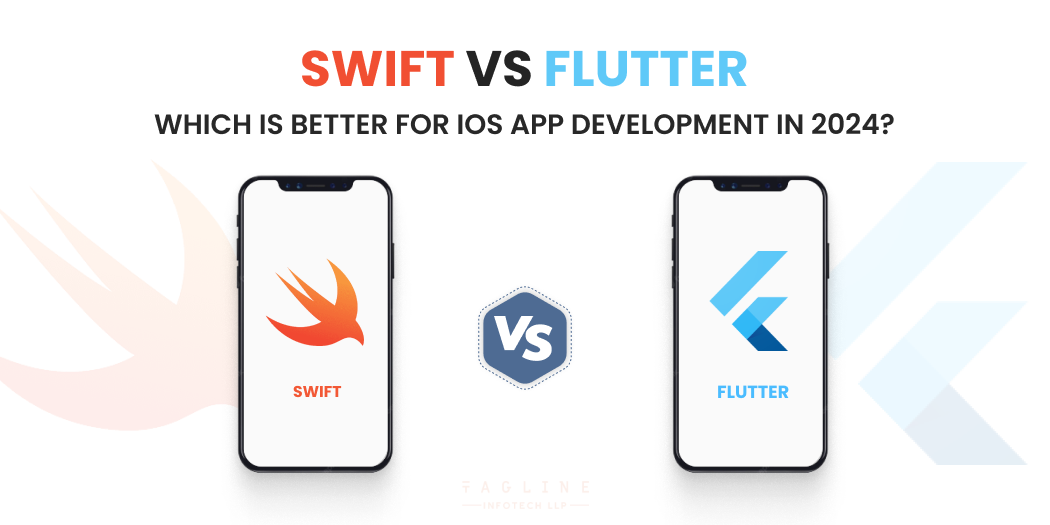
Quick Summary:
Swift and Flutter are the two most desired technologies for businesses considering developing an iOS application. Can the imposter triumph use native technology? What is the best option for your application in Swift vs Flutter? Let us investigate and know which turns out to be the best mobile app framework.
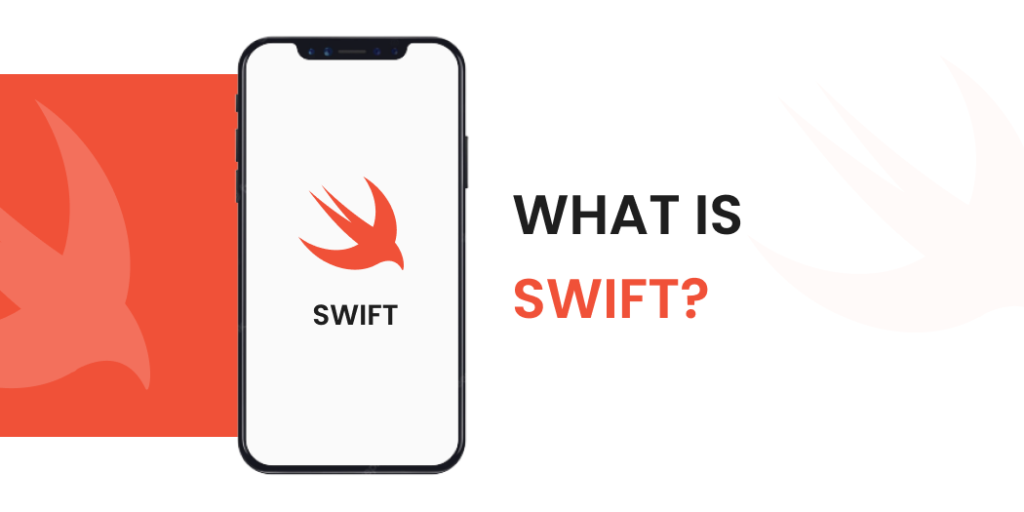
Swift is an Apple programming language that was developed as the successor to Objective-C. It is used by Apple, but it is also available to developers who want to create their own apps for iOS-powered devices. It will be possible to use it to develop applications for Android and Windows starting in 2020. Swift was released in 2014 and has since received numerous updates and improvements. The most recent stable release, 5.3.1, was released on November 13, 2020.

Flutter is a “cross-platform UI toolkit designed to allow code reuse across operating systems such as iOS and Android,” according to the documentation. Dart, an object-oriented programming language, serves as the foundation for this free and open-source platform. Google created both Dart and Flutter. Dart was introduced in 2011, while Flutter arrived in 2015.
Flutter allows you to create two versions of your application at the same time. Flutter is platform-agnostic, so it uses the same code to work on both iOS and Android. While Swift is a programming language in and of itself, Flutter is a platform for building applications that combines a language (Dart) and compatible widgets.
Need a reliable and experienced Flutter development team to build your iOS app?
Our team has years of experience in Flutter app development and can help you create a high-quality, feature-rich app that meets your business needs and exceeds your expectations. .
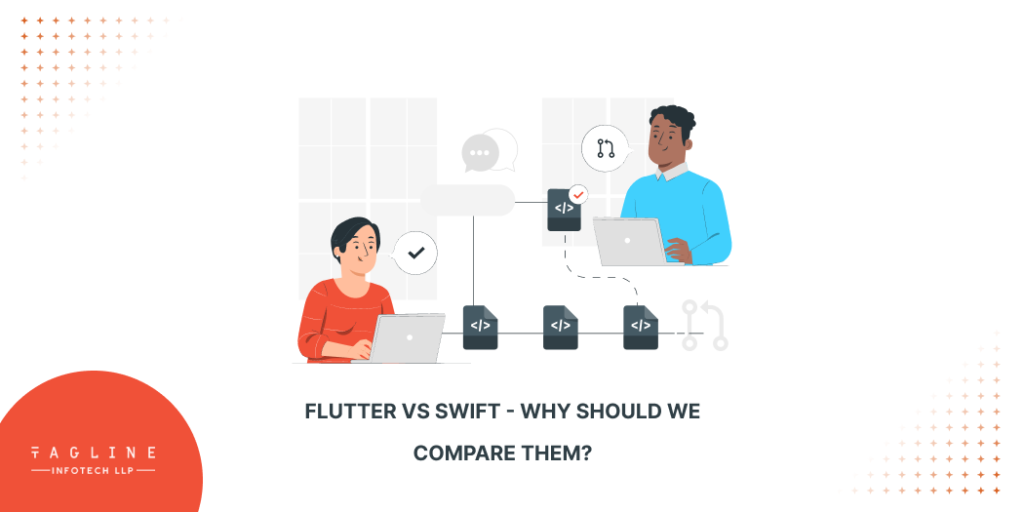
Why should we compare them if one is a programming language and the other is a toolkit or platform? They are both popular mobile and web application solutions. You can use either of them for your iOS app, and they are both worthy of consideration. Years of experience have shown that it is not always necessary to use a platform-native solution to create a successful application. Especially if you intend to broaden your offering and deliver the same application on other platforms.
So, swift vs flutter, which of them is better, more appropriate for your business? Let us investigate!
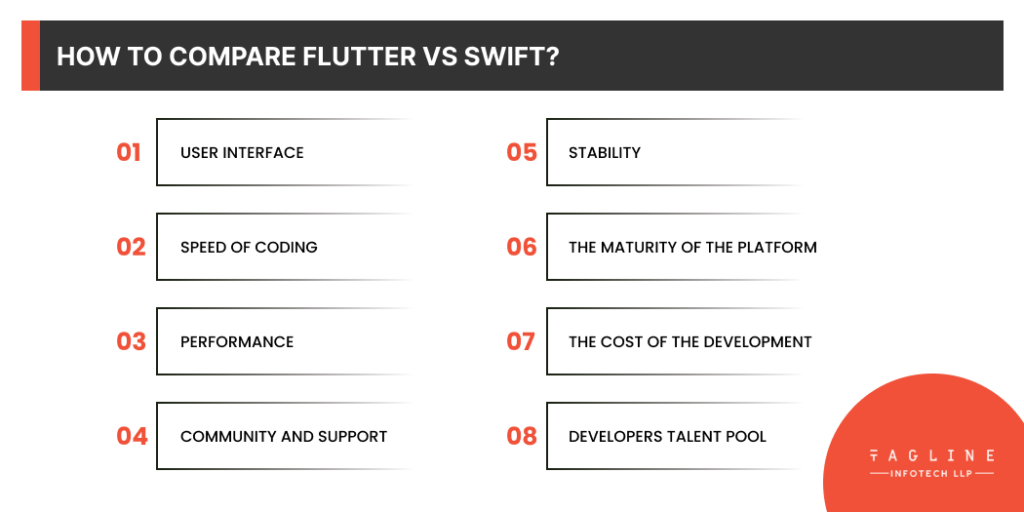
In swift vs flutter, we will compare Flutter and Swift using different criteria. In terms of the user interface, it is critical to consider how well your app will integrate with the platform’s native interface and functionalities. Coding speed is critical for time-to-market and cost-efficiency.
The performance tells us how well your app will exploit the device’s capabilities. When your development team faces difficulties, community, and support will come in handy. The reliability of your application to the user is determined by its stability. The development process is aided by comprehensive and easily accessible documentation.
The platform’s maturity may have an impact on performance and stability. The development cost is critical for business justification. Finally, the size of your talent pool influences the development and maintenance of your app, as well as its costs. You can see that the Flutter ios app development procedure is slower than Swift.
Of course, because Swift is an iOS-native language, implementing any native iOS interface features is simple. The user interface will be as similar to iOS as possible. However, you will have to create every feature and every aspect of the UI from scratch. Flutter comes with a plethora of ready-to-use UI elements. To begin, consider only the Material and Cupertino widgets. Swift’s assistance is usually unnecessary. From the user’s perspective, Flutter UI should be indistinguishable from native Swift.
Swift is ideal for developing an iOS application from the ground up. Overall, it works well, but it takes longer to reflect changes in code. Swift developers, on the other hand, claim that it ensures a shorter build time, particularly for the initial build of an app.
Flutter, on the other hand, comes with a plethora of widgets, libraries, navigation, and testing tools that help to accelerate coding. Flutter developers don’t have to spend much time polishing UI elements because Flutter does it for them.
Furthermore, Flutter’s Hot Reload reduces the time required to see recent code changes. Modifications are thus made more quickly. Furthermore, the same application written in Flutter often requires fewer lines of code than its Swift counterpart.
When talking about swift vs flutter, Swift, as the native language for iOS apps, has a significant advantage. When it comes to the question of flutter vs swift performance, apps built in swift performs better than flutter. You can expect improved performance for tasks that require a large amount of computation power (graphic effects for example). Swift might be the better option for juicing up the platform.
Flutter, on the other hand, does not lag behind. Dart first employs a garbage collector. Second, it is AOT (ahead of time) compiled, allowing for quick communication with the device. Flutter will perform nearly as well as native Swift unless you need to make the most of the iOS platform.
Swift.org is where the majority of the Swift community congregates. Swift has over 830 contributors on GitHub, and over 2600 people follow the thread. You can also find over 284 thousand Swift-tagged questions on Stack Overflow.
Flutter’s figures appear to be similar. On GitHub, it has 3400 followers and 770 contributors. However, the number of Stack Overflow questions tagged ‘flutter’ is less than 70 thousand. The Flutter community congregates on Google Groups and other forums (like Slack community for Flutter). Furthermore, because it is an open-source solution, Flutter is more community-friendly.
Stability is also a point to be considered when it comes to selecting the best mobile app framework. Despite the fact that both technologies are relatively new, they do not cause many stability issues. They are created and maintained by professionals who use them every day. Swift, as a native technology, should be more stable and reliable on iOS than Flutter.
That is, however, only if you find and hire a top-tier Swift developer capable of getting the most out of Apple’s solutions.
Want to build a high-quality iOS app with a beautiful and responsive UI?
As a leading Flutter development company, we can help you take advantage of Flutter’s widget library to create stunning designs that users will love.
.
When it comes to selecting the best mobile app framework, the maturity of the platform needs to be considered. These platforms are young, but that doesn’t make them immature. Before releasing Swift, Apple drew on many years of Objective-C experience and has made numerous improvements since then. Google also gathered experience for a few years before releasing Flutter.
Both are open source, so you won’t have to pay anything extra. Experienced developers charge comparable rates as well. If you only consider an iOS app, the cost difference isn’t that significant. Flutter, on the other hand, allows you to create an Android version at the same time. That would be game-changing.
Companies should pay attention to whether aspiring developers choose to learn Flutter or Swift. The more people who understand and use a particular technology, the easier it is to find talent for your project.
In 2024, it will be easier to find Swift developers than Flutter experts. Swift is popular among 6.1% of professional developers, according to the Stack Overflow 2020 survey, while Dart, the language behind Flutter, only reached 3.7%. Consider, however, that Flutter allows you to create both iOS and Android applications at the same time.
If you want to learn about other differences, simply click on it to find out more: Flutter vs React Native: Which is the Best Choice 2024?
In swift vs flutter, if the comparison above hasn’t convinced you, consider how the business uses both solutions. They appear to be used by both small and large businesses.
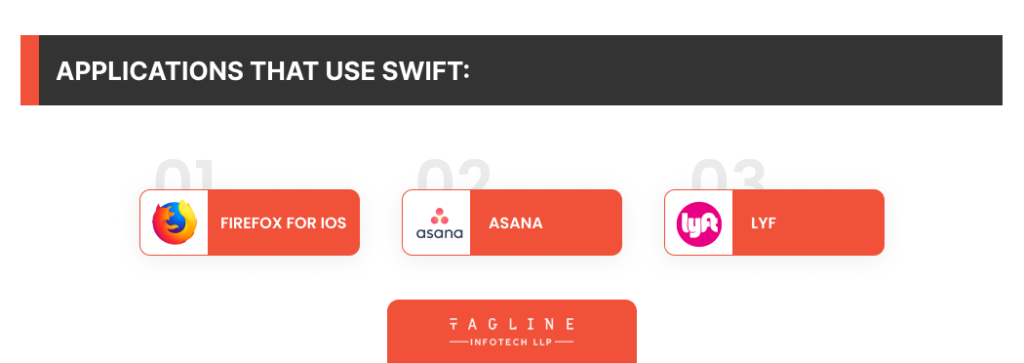

So? Swift or Flutter? There is no one-size-fits-all solution to this quandary, no matter how many figures we provide. There are well-known companies that use both technologies, and deciding which one to use for your iOS app is dependent on the unique traces of each business.
If you were wondering should I learn swift or flutter then I hope this blog is useful for you. Hire Flutter developers if you want to use the same codebase and deploy the application on both platforms iOS and Android.
If your company has prior experience with either of the compared two, the decision will be easier. However, you are not required to learn Flutter or Swift. Your employees don’t either. The tagline has all the experts you need for mobile development on both platforms.
Swift is easier to learn than Flutter because developers don’t have to learn any additional programming languages. The developers can easily learn Swift because it provides better community support and rich documentation.
Swift is the best option to create iOS applications because it is a clean and expressive language with a simplified syntax. Developers prefer to use swift because it is easier to read and write.

Digital Valley, 423, Apple Square, beside Lajamni Chowk, Mota Varachha, Surat, Gujarat 394101
+91 9913 808 2851133 Sampley Ln Leander, Texas, 78641
52 Godalming Avenue, wallington, London - SM6 8NW